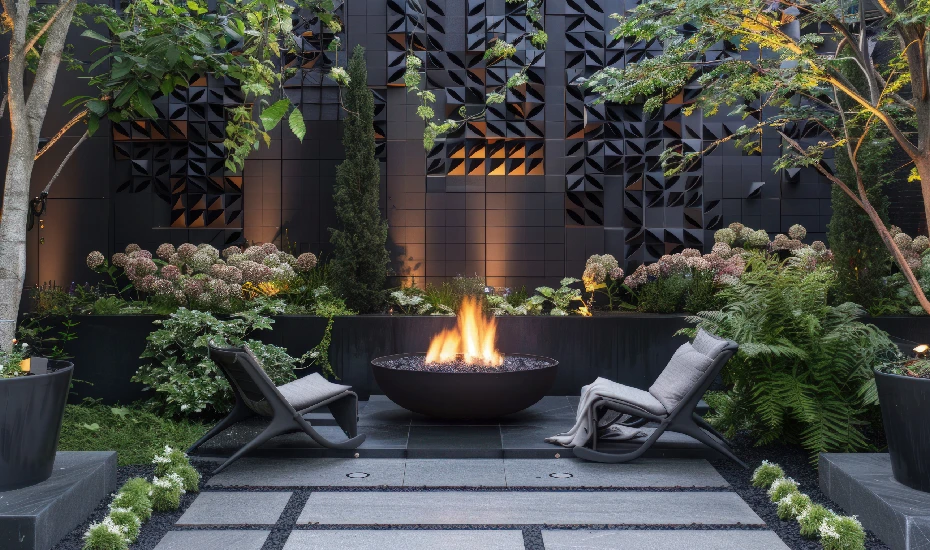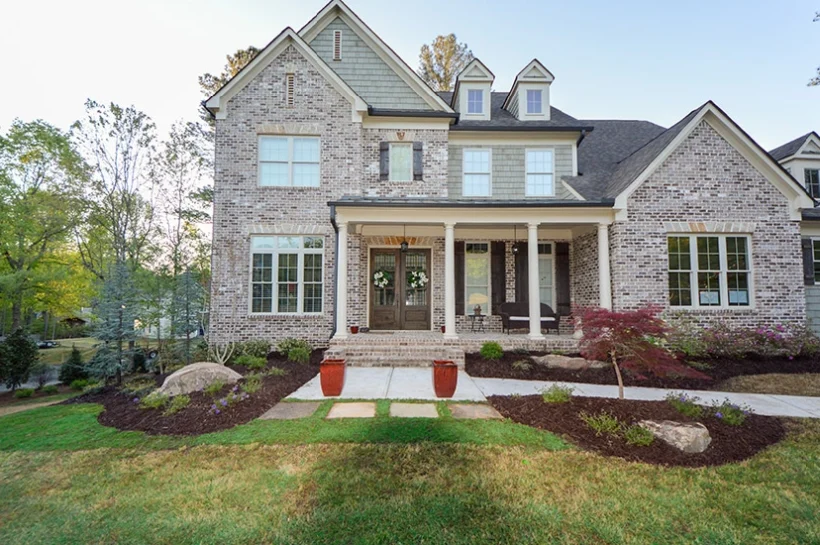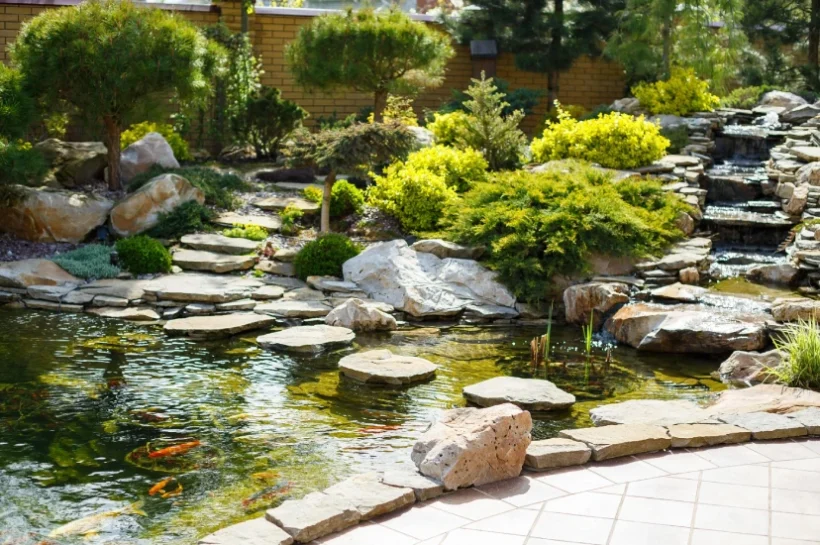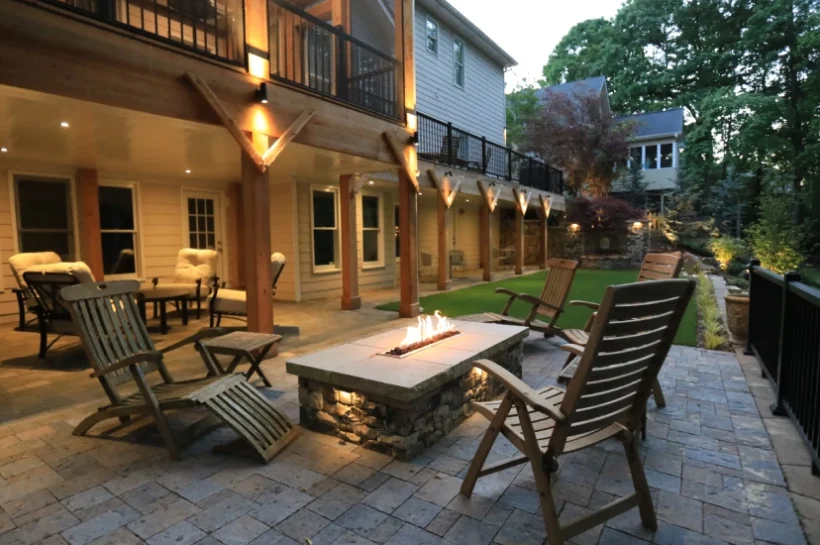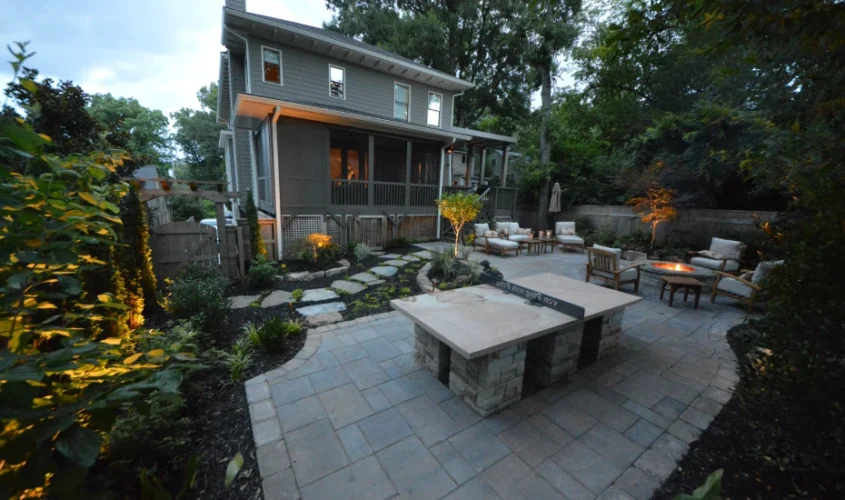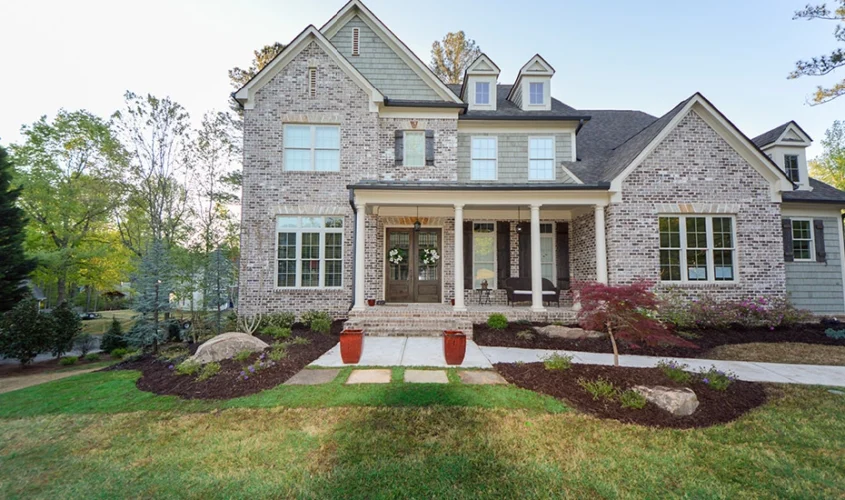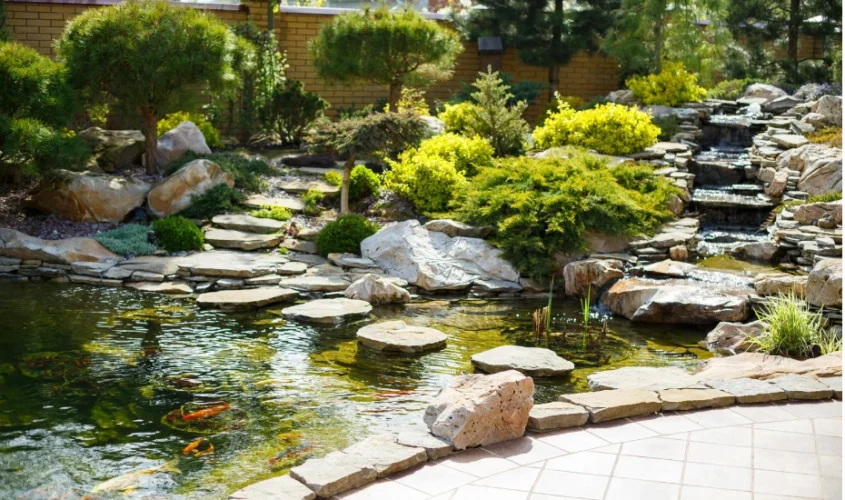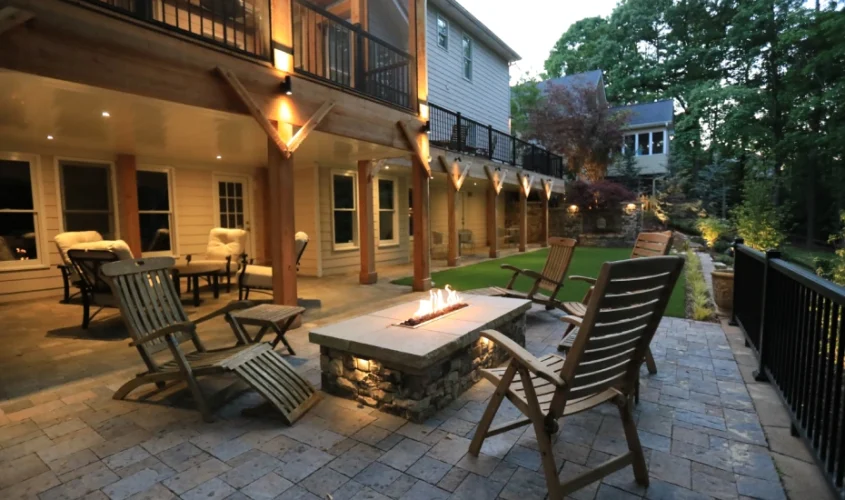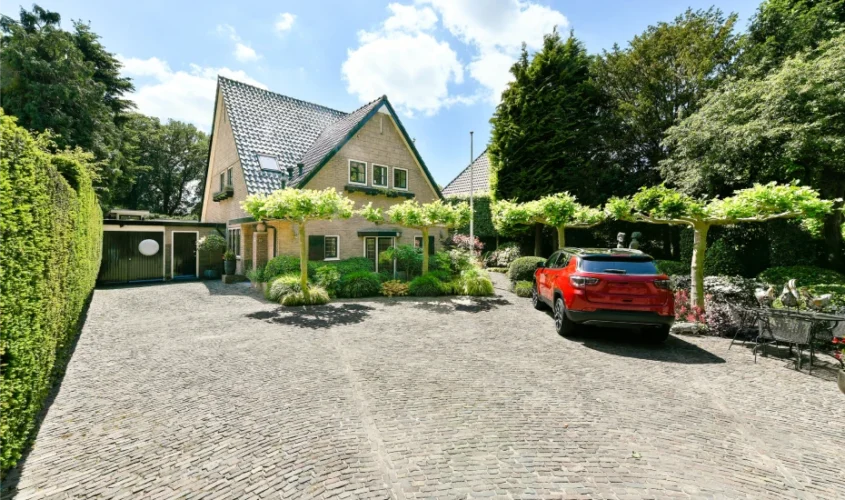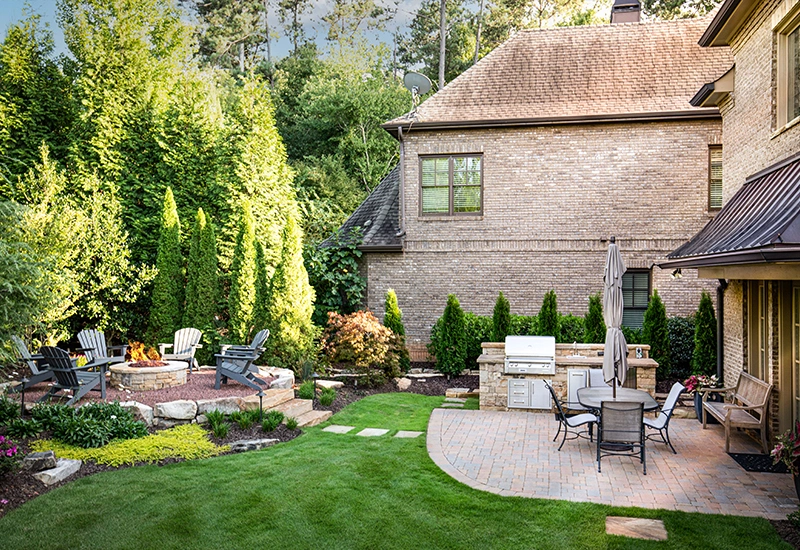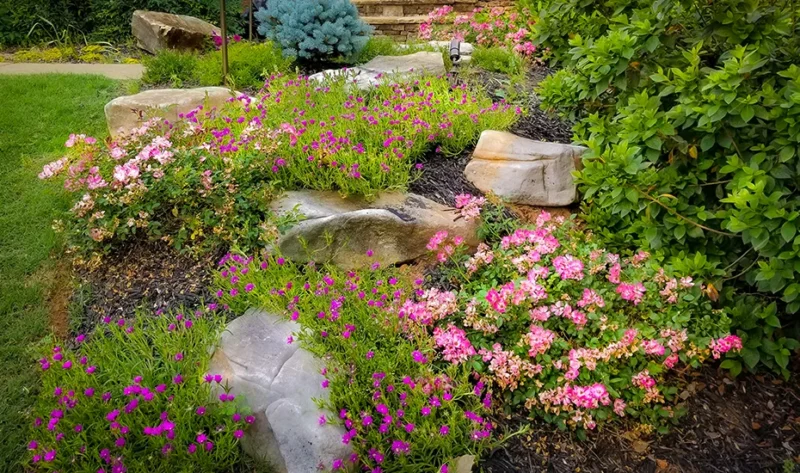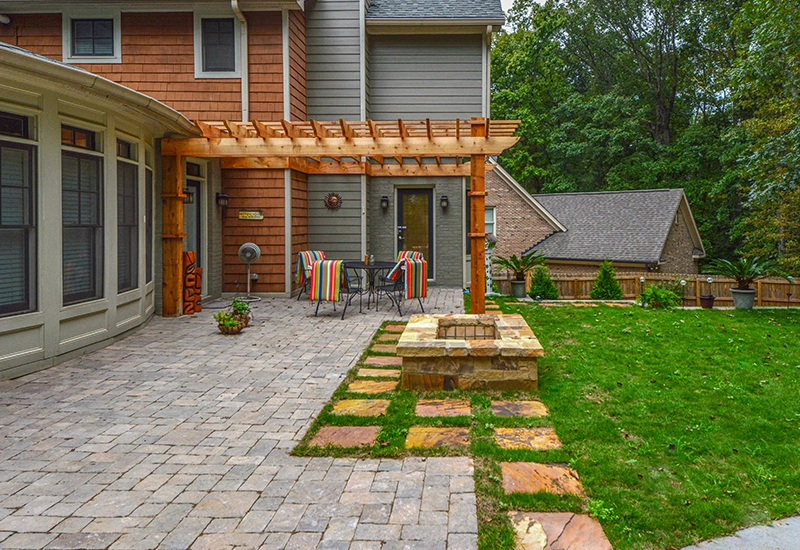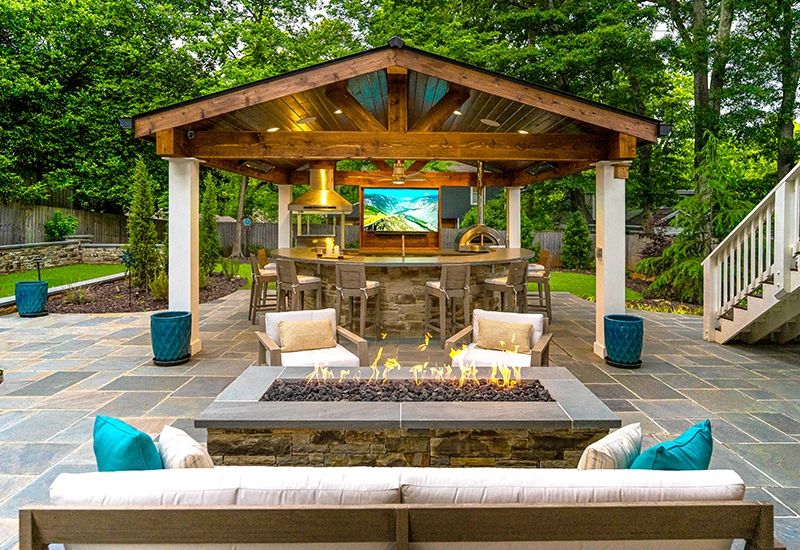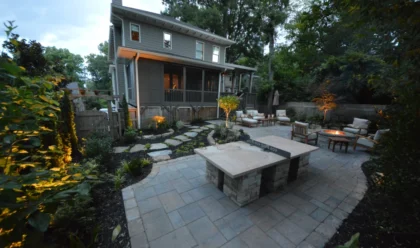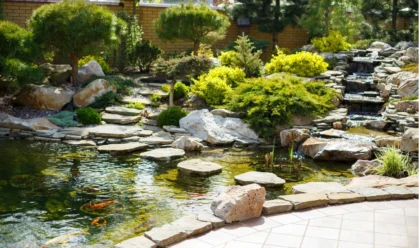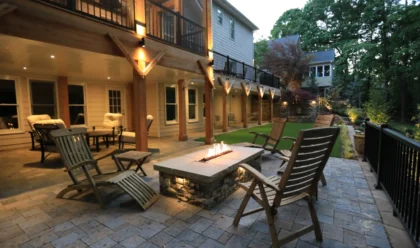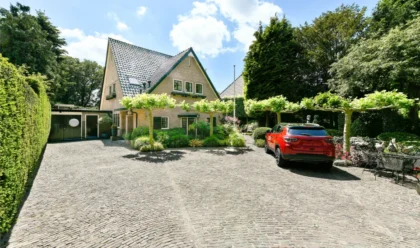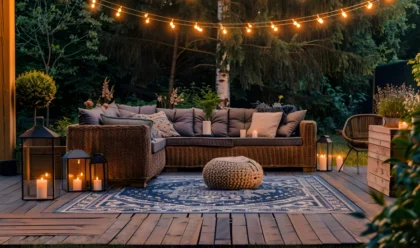Metal fire pits have become increasingly popular nowadays due to their combination of durability and aesthetic appeal. Unlike other materials, metal can endure high temperatures and resist the wear and tear of outdoor elements. Steel and cast iron are two most popular options due to their strength and longevity. They allow homeowners to enjoy their fire pits for many seasons without worrying about damage or degradation. In addition to their functional benefits, these types of fire pits offer a wide range of design possibilities.
While metal fire pits offer a number of benefits, they have one major drawback: rust. Over time, these fire pits start to rust when they are exposed to different elements like humidity, snow, and rain. Due to the exposure to moisture for a long time, your fire pit can start developing rust. Fortunately, there are various things you can do to prevent your fire pit from rust and keep them brand new for long.
What Causes Your Metal Fire Pit To Rust?
Metal fire pits can enhance the visual appeal of any outdoor space -from sleek, modern designs with clean lines to rustic, handcrafted styles with intricate cutouts. As a homeowner, these fire pits provide you the ability to customize the look, finish, and size. Therefore, they become a centerpiece in any backyards, patios, or gardens.
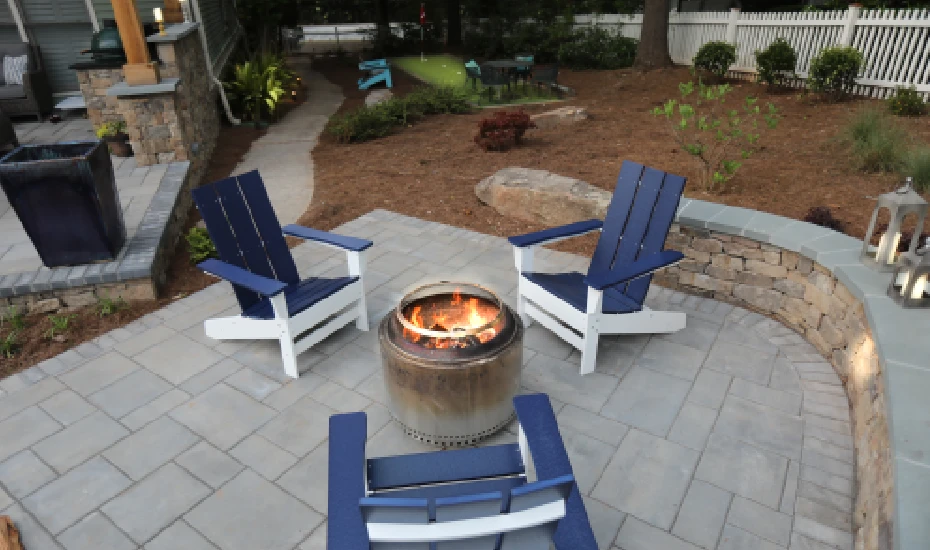
Rust is the result of a natural chemical process known as oxidation, which occurs when metal is exposed to moisture and oxygen. Here are some key factors that contribute to rusting on your metal fire pit:
-
Exposure to Moisture
Moisture is the primary culprit behind rust formation. Rain, snow, and even dew can settle on the surface of your fire pit, causing it to slowly corrode. Leaving your fire pit uncovered or exposed to wet environments accelerates this process.
-
Humidity
In humid climates, even the moisture in the air can lead to rusting over time. The constant presence of water vapor in the air can cause tiny droplets to form on the metal surface, leading to oxidation without direct contact with rain or snow.
-
Lack of Protective Coating
Metal fire pits are typically coated with a protective layer, but this coating can wear down over time due to heat exposure, weather conditions, and regular use. Once this layer is compromised, the bare metal is left exposed to the elements, increasing the likelihood of rust.
-
Standing Water Inside the Fire Pit
After a rainstorm or if the fire pit is left outdoors without a cover, water can pool inside the base of the fire pit. Metal sitting in standing water rusts much faster than surfaces exposed only to moisture in the air.
-
Ash and Debris Buildup
Ashes from burned wood are acidic when mixed with water, which can further accelerate rust formation. If ash and debris are left in the fire pit after use, moisture from rain or humidity can combine with these residues and increase the chances of rust developing.
9 Important Steps To Prevent Your Fire Pit From Rusting
Choose the Right Material
The material for your fire pit can have a huge impact on its susceptibility to rust. Some metals are more rust-resistant than others, so selecting the right type can give you a head start on prevention.
-
Stainless Steel Fire Pits
Stainless steel is known for its corrosion resistance, thanks to the chromium content that forms a protective oxide layer. While stainless steel is more expensive, it’s a popular choice for those looking to minimize rust issues.
-
Copper Fire Pits
Copper fire pits develop a natural patina over time, which acts as a protective barrier against rust. While copper won’t rust in the traditional sense, it will oxidize, but this is generally considered aesthetically pleasing.
-
Cast Iron and Steel Fire Pits
If you choose cast iron or regular steel fire pits, you’ll need to be more diligent in protecting them. These materials are prone to rusting, especially in humid or wet environments, but they can still last for years with proper care.
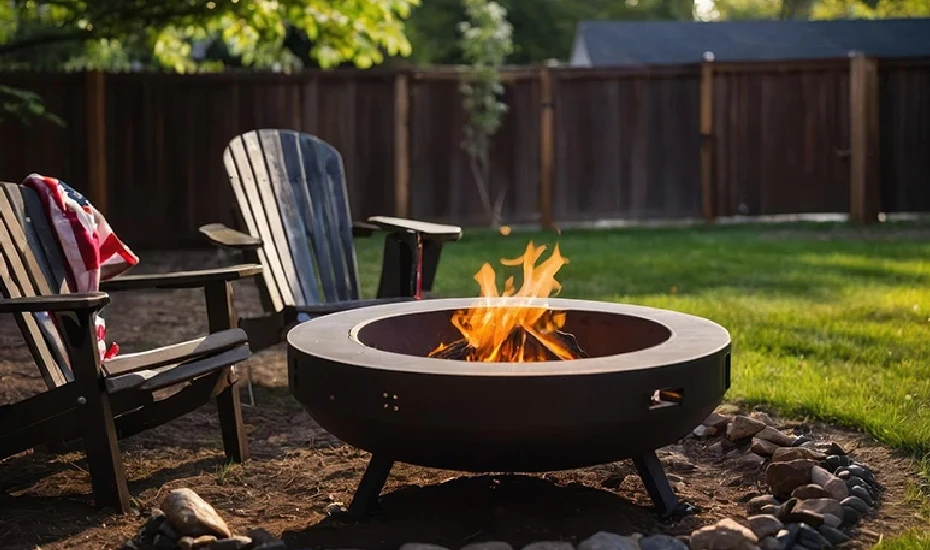
Apply a Protective Coating
A protective coating acts as a barrier between the metal and environmental elements, preventing moisture from coming into direct contact with the surface. Here are some of the most effective coatings you can apply to your fire pit:
High-Temperature Paint
Using a high-temperature paint specifically designed for metal fire pits can offer protection against rust. These paints are heat-resistant and can withstand the intense temperatures produced by your fire pit without degrading.
How to Apply:
- Clean the fire pit thoroughly to remove dirt, grease, and rust.
- Sand any areas where rust has started to form.
- Apply a layer of high-temperature primer before painting.
- Use multiple coats of high-temperature paint, ensuring each coat dries fully before applying the next.
Rust Inhibitor Spray
Rust inhibitor sprays are an easy way to add an extra layer of protection to your fire pit. These sprays work by repelling moisture and preventing oxidation.
Pro Tip:
- Reapply rust inhibitor spray every few months, especially before rainy seasons or if your fire pit is exposed to humid conditions.
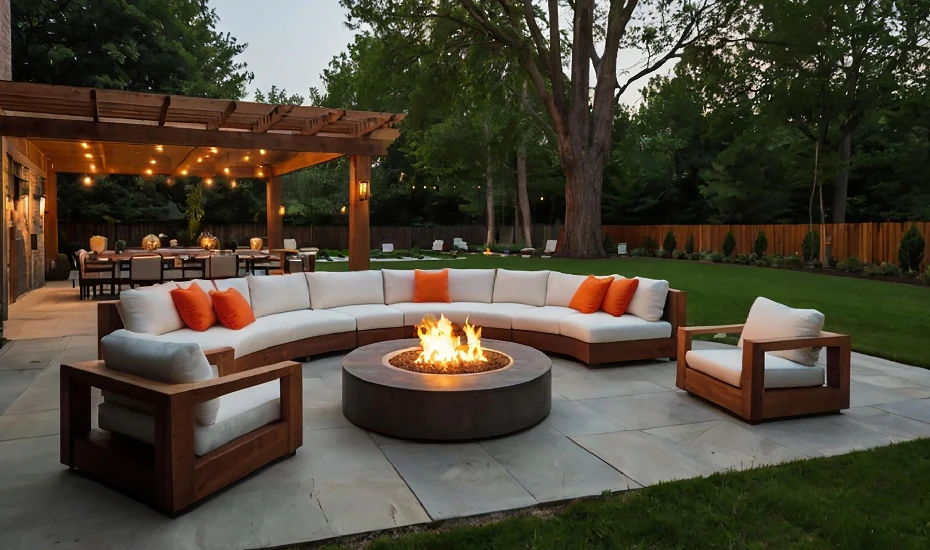
Regular Cleaning and Maintenance
Routine cleaning is one of the most effective ways to prevent rust from forming. Metal fire pits need to be cleaned after every use to remove ash, soot, and debris that can hold moisture and create a corrosive environment.
How to Clean a Metal Fire Pit:
- Remove Ash and Debris: Wait for the fire pit to cool completely, then use a metal shovel to remove the ashes. Ash can be acidic and promote rust when mixed with moisture.
- Wipe Down the Surface: Use a damp cloth with mild soap to wipe down the fire pit’s surface and remove soot or residue. Be sure to dry the fire pit thoroughly afterward to prevent water from sitting on the metal.
- Inspect for Rust: Regularly check for any signs of rust. If you find small spots of rust, use a wire brush or sandpaper to remove it, then apply a rust inhibitor or high-temperature paint to prevent it from spreading.
Pro Tip:
- Perform a deep cleaning at the beginning and end of every season to keep your fire pit in top condition.
Keep Your Fire Pit Covered
One of the easiest ways to protect your metal fire pit from rust is by covering it when it’s not in use. A high-quality, weatherproof cover will shield it from rain, snow, and even morning dew that can lead to rusting over time.
Choosing the Right Cover:
- Waterproof Material: Look for a cover made of durable, waterproof material, such as heavy-duty polyester or PVC.
- Proper Fit: Ensure that the cover fits snugly over the fire pit to prevent water from seeping in but also allows for air circulation to prevent condensation buildup.
When to Use a Cover:
- Always cover the fire pit after each use, especially during rainy or snowy weather.
- Use a cover year-round, even in dry seasons, to protect against morning dew and humidity.
Store Your Fire Pit Properly During Off-Seasons
When your fire pit isn’t in use, particularly during the winter or rainy seasons, proper storage can make a big difference in preventing rust.
Indoor Storage:
If possible, store your fire pit in a garage or shed when it’s not in use for extended periods. Keeping it away from the elements significantly reduces the chances of rust forming.
Outdoor Storage Tips:
If moving your fire pit indoors is not an option, elevate it off the ground by placing it on bricks or stones. This prevents water from pooling underneath the fire pit, which can lead to rust.
Pro Tip:
- If you live in a particularly harsh climate, consider disassembling the fire pit (if possible) and storing the individual parts indoors.
Avoid Standing Water Inside the Fire Pit
One of the quickest ways to cause rust is by allowing water to sit inside your fire pit for long periods. After it rains, water can pool inside the base, accelerating the oxidation process.
Solutions:
- Drill Drainage Holes: If your fire pit doesn’t already have them, drill small drainage holes in the bottom to allow water to escape.
- Use a Fire Pit Cover: As mentioned earlier, using a cover with a dome shape prevents water from pooling inside the fire pit.
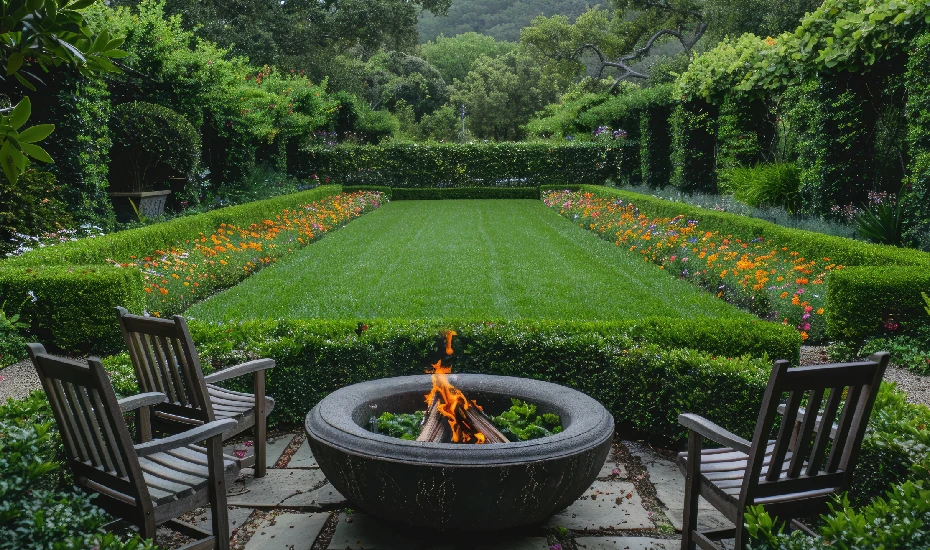
Use Sand or a Fire Pit Liner
Adding an additional layer inside your fire pit can protect the metal surface from direct exposure to moisture.
Using Sand:
Fill the bottom of the fire pit with a layer of sand. This not only helps absorb moisture but also protects the metal from extreme heat, which can cause it to weaken and rust over time.
Fire Pit Liners:
Fire pit liners are specially designed inserts that sit inside the fire pit and prevent the base from coming into direct contact with moisture and heat. They’re a great long-term solution to prevent rust.
Pro Tip:
- If you use sand, replace it periodically to ensure it remains dry and effective.
Apply Oil to Your Fire Pit
A simple yet effective way to prevent rust is by applying a light coat of oil to your metal fire pit. Oil acts as a barrier that repels water and prevents moisture from making contact with the metal.
How to Apply:
- Use vegetable oil, motor oil, or cooking oil for this process.
- Apply the oil with a soft cloth, making sure to coat the entire surface.
- Reapply after every few uses or whenever you notice the fire pit starting to look dry
Invest in Rust-Resistant Fire Pit Accessories
Accessories like fire pit grates, cooking grids, and covers made from rust-resistant materials can extend the life of your fire pit by preventing rust in key areas.
Examples:
- Stainless Steel Grates: Stainless steel cooking grids and grates are resistant to corrosion and can withstand high temperatures without rusting.
- Cast Iron Accessories: If you prefer cast iron for its heat retention, be diligent about cleaning and oiling these pieces after each use to prevent rust.
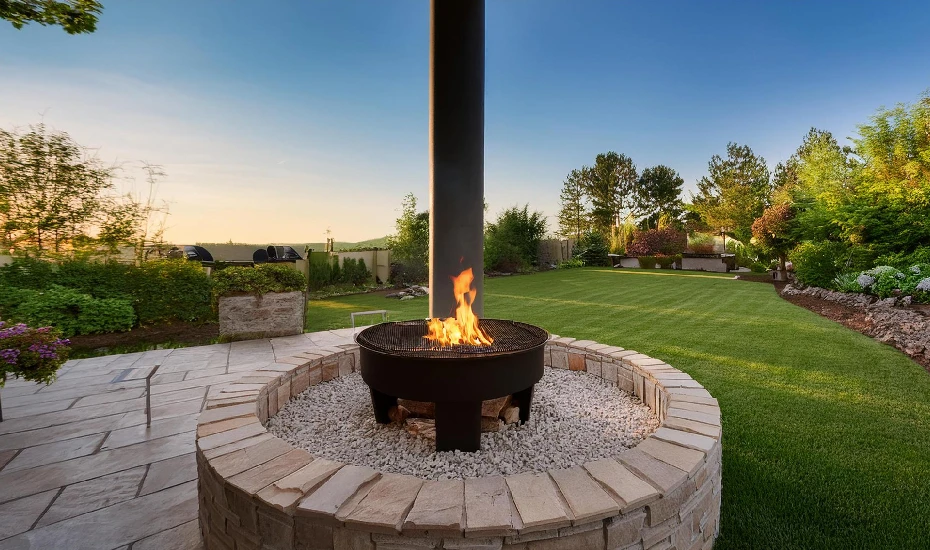
Wrapping Up
Your metal fire pit is a valuable investment that provides warmth, ambiance, and a gathering space for friends and family. By understanding what causes rust and taking proactive steps to prevent it, you can enjoy your fire pit for years without worrying about deterioration.
From choosing the right materials and applying protective coatings to cleaning and storing it properly, rust prevention is all about consistent care. With these tips in hand, you’ll be well on your way to keeping your metal fire pit in pristine condition, no matter the weather or season.
Make sure to implement these practices regularly, and your fire pit will continue to be the centerpiece of your outdoor space, rust-free and ready for every fire-lit evening ahead.
